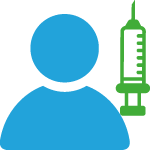The Covid Vaccine Study

The importance of a control group for the COVID vaccines
The SARS-CoV-2 (Covid) vaccinations are an untried and untested MRNA technology, which we have never before seen used in humans. No long-term safety trials have been completed yet for these injections and therefore it would be true to say that they are experimental.
In research of any kind it is vital to have both an experimental group and a control group. The experimental group received the treatment (SARS CoV-2 vaccines in this case) the researcher is interested in measuring the effectiveness of. The control group does not receive the treatment.
The reason for this is so that the researchers can determine if the treatment has an impact on the measure of experiment (in this case, the reduction in serious infection as well as the incidence of adverse reactions in those given the SARS-CoV-2 vaccine ). A control group serves as a baseline comparison to the experimental group, whereby the researchers can reliably compare the measured results of the treatment cohort with the control.
Failure to provide a strong control group may cause a study to be considered invalid, because it would not allow the researchers to eliminate or attribute effects that might have occurred within the experimental group as being due to the treatments or incidental occurrence.
The people originally allocated by the pharmaceutical companies to be part of a control group for the SARS-CoV-2 vaccines, have almost all been vaccinated now. This means that the official, long term control group for the SARS-CoV-2 vaccine research no longer exists. This is irresponsible and against best practice for scientific research and it means that neither the risks nor the benefits can be truthfully attributed to the vaccinations.

The Covid Vaccinated
The Control Group study now also includes those who have taken any number of Covid vaccinations.
This is for two reasons; firstly, it is important to have our own comparison group and secondly, there are a large number of people who believe they have been injured by their Covid injections, but are being ignored by doctors and other allopathic health professionals.
The numbers are growing, but if their experiences are being ignored, then their health outcomes are not being recorded. To ignore any kind of safety signal in a new treatment is unscientific and negligent.
As a member of the Control Group, any vaccinated member can record their symptoms and the suspected or confirmed cause. This anonymized data will be available for researchers and scientists to analyze.
What data are we collecting and how is it secured?
We are collecting vital health information along with demographic data for researchers and scientists to analyse and report on.
This includes:
- Health Conditions
- Vaccination History
- Surgeries and Procedures
- Medication & Supplements
- Allergies
- Blood Test Results
- Scans and Investigations
- Diet
- Pregnancy Outcomes
- Changes in Menstruation
- Personal Details (height, weight, age, biological sex etc..)
Your data will be anonymised into an analytical data warehouse, which we will make available to selected, independent scientists and researchers. The published results of their reports will be made available to the public, governments and media.
We also plan to leverage this analytical warehouse so that our own community can investigate and learn from their cumulative data; arming us with knowledge about our own health, so we can all make informed decisions for ourselves and our families.
Identity protection is extremely important to the Control Group and we have worked extensively to build an IT infrastructure designed from the ground up to decentralise all personal account information from the health data that our participants enter.
The data is stored across multiple data repositories, and encrypted at rest with additional layers of encryption on key meta data that is only available via our API, which has the ability to synchronise the health data to the participant.

Scientific Committee
It is a principled obligation of any research to have qualified individuals who are not part of the research team to review and approve the study for ethical conduct.
Control Group Cooperative Ltd have recruited their own independent Scientific Committee, with members of varying experiences and expertise and with differing views on the study subject. The Committee are responsible for ensuring the rights of the participants entering into the study are upheld and protected by evaluating the study protocol.
Committee members

Myra Forster-van Hijfte
Myra is a Veterinary Surgeon, Diplomate of the European College of Small Animal Internal Medicine, and a Fellow of the Royal College of Veterinary Surgeons.
She has been active in the veterinary sector for more than 35 years and has published and lectured both nationally and internationally.
She is currently studying for a Masters in One Health. One Health is an approach that recognizes that the health of people, animals and the environment are closely interlinked and that close collaboration between these disciplines is essential.

Dr Jon Rogers
Dr Jon Rogers MB ChB (Bristol) is a retired NHS General Practitioner.
He has been a Bristol City councilor with an interest in evidence based medical, social and environmental practices.
He is also a director of the UK Medical Freedom Alliance.

Tom Shaw
Tom is a dental student based in Newcastle-upon-Tyne, UK. He joined the Control Group Committee to help ensure that vital work in understanding the impact of Covid-19 jabs is done in an ethical and moral way; something which has been sadly lacking in many other areas of the Covid-19 response.
When he's not looking in people's mouths, covering his bills or comprehending the state of the world, you can find him playing music, taking long hikes or (occasionally) enjoying a game of badminton.

Dr. Ross Jones MBBS, MD, FRCPCH
Dr Jones is a retired NHS Consultant Paediatrician with a special interest in neonatal intensive care and pediatric HIV. She has published 30 peer-reviewed articles including being lead author on an international multicentre trial. She served on the Advisory Committee of the National Perinatal Epidemiology Unit and on the Education & Training committee of the RCPCH. An active member for many years in the British Perinatal Trials Group, she was also involved in reviewing NICE guidelines alongside some time editorial work.
After retiring from the NHS, she undertook several tours teaching on SAFE Obstetrics courses in countries in Africa. Since the onset of the pandemic she has been a spokesperson for HART, the Health Advisory and Recovery Team.

Dr. David Cartland MBChB, BMedSci
Dr David Cartland is a fully qualified doctor and GP. His First-Class Honors degree in Biomedical science included a year of specialist immunology and microbiology/virology training including statistical analysis.
Between his two degrees Dr Cartland worked for a year in the angiogenesis research group at the University of Birmingham and he is a published author in angiogenesis research; he is a General Practitioner with some fourteen years' experience.

Dr. Curtis Nordstrom
Curtis Nordstrom is an American physician working in Switzerland, training in Psychiatry and General Medicine. In addition to his medical degree he holds a master's degree in Health Promotion and a bachelor's degree in German Language and Literature. His current clinical focus is on trauma therapy and EMDR, depression, and anxiety.
Curtis also has a special interest in nutritional and PEMF treatments for somatic and psychiatric maladies. He is a member of Aletheia, a group of Swiss health professionals focused on medical freedom. Before medical school Curtis served as a Hospital Corpsman (field medic) with the US Marine Corps infantry. He is married and the proud father of two lovely daughters.

David Seedhouse
David Seedhouse is the creator of the DPN: https://deliberativepractice.com/. David's mission is to promote deep thinking and clear communication about the social issues that affect us all - by using the internet for structured, tolerant democratic engagement.
Before running the DPN David was Professor of Health and Social Ethics at Auckland University of Technology for eleven years and Professor of Health Care Analysis at Middlesex University, UK for three years. He is currently Professor of Deliberative Practice in the School of Pharmacy at Aston University in Birmingham, UK.
David has written 17 books including Health: The Foundations for Achievement, Ethics: The Heart of Healthcare, Using Personal Judgment in Nursing and Healthcare and Health Promotion: Philosophy, Prejudice and Practice – three of which have had further editions . For several years he was a best-selling Wiley author on their medical list. David was also founding editor of the international journal Health Care Analysis , which he edited for 7 years.
An international observational study to determine the safety of all Covid-19 vaccines - protocol
📄 Click to download PDF of our study Protocol
Published Data
Self-Selected COVID-19 “Unvaccinated” Cohort Reports Favorable Health Outcomes and Unjustified Discrimination in Global Survey
by Dr Robert Verkerk PhD, with Dr Naseeba Kathrada, Christof Plothe and Dr Kat Lindley
Published in the International Journal of Vaccine Theory, Practice, and Research
Control Group Cooperative Ltd, Data release from Winter health reporting September 2021 to February 2022
📄 The paper can be found here: https://ijvtpr.com/index.php/IJVTPR/article/view/43
📄 Download the PDF version here
Please note that the paper was originally published on ResearchGate, but was then removed after gaining attention from mainstream media.
- Link to Introduction video: https://odysee.com/ControlGroupSurveyFindings:4d1e24b3f29d4d88ed17201b7d359f0fb0a768f2
- Link to Authorea Preprint: https://www.authorea.com/users/489959/articles/573441-self-reported-outcomes-choices-and-discrimination-among-a-global-covid-19-unvaccinated-cohort
- Link to ANH with Introduction Video and link to Paper: https://www.anhinternational.org/news/unvaxxed-control-group-first-release-of-survey-data/
August 2022:
Abstract
Self-reported data collected independently by the UK-based Control Group Cooperative between September 2021 and February 2022, inclusive, from a self-selected international COVID-19 “unvaccinated” population are discussed. Data come from a cohort of 18,497 participants who provided questionnaire responses monthly.
The largest numbers are from Europe, North America, and Australasia. Data were skewed towards the 40-69y age range and included 60% female respondents. Reasons for avoiding COVID-19 “vaccines” were: a preference for natural medicine, distrust of pharma, distrust of government information, poor/limited trial data, and fear of long-term adverse reactions. During the survey period, the greatest incidence of COVID-19 disease was reported in the 50-69y range, peaking at 12.3%, in January 2022.
Persons at 70y and above were least affected (1.3%), with 10.7% and 3.8% in the 20 to 49y band, and in the 1 to 19y group, respectively. Most rated their symptoms as "mild" (14.4%), with 2% reporting "severe" disease. Fatigue, cough, muscle/body aches, and fever were the four most common. Just 0.4% of the cohort reported hospitalization (as in- or out-patients).
Nearly two-thirds reported taking vitamin D, C, zinc, quercetin, or a combination, for prevention, with 71% using vitamin D, C, and zinc for treatment.
Nearly 45% reported “moderate” to “severe” mental health issues (depression) during the survey period. Menstrual abnormalities were reported by 36% of women in the 20-49y age band.
Reported job losses were greatest in Australia and New Zealand at 29%, followed by 13% in North America. Between 20% and 50% reported being personal targets of hate because of their vaccination status. Between 57% and 61% of respondents in Southern Europe and Western Europe, Australia/New Zealand and South America, reported being targets of governmental victimization.
The cohort may not be representative of wider populations given its reliance on self-care.
The findings suggest that opting out of the world's largest medical experiment, relying on natural immunity, self-care with supplements, and/or ivermectin or hydroxychloroquine, appeared to contribute to low incidences of severe disease, hospitalization, or death.
The results imply the urgent need for prospective studies of "unvaccinated", "partially vaccinated", and "fully vaccinated" persons investigating long-term outcomes, behaviors, choices, and discriminatory responses by the state, institutions, or employers based on "vaccination ” state. Public dialogue about the touted "safety and effectiveness" of vaccines, contrasted with strategies to enhance immune resilience, all in the context of authoritarianism versus autonomy, self-care, personal responsibility, and freedom of choice is needed.

